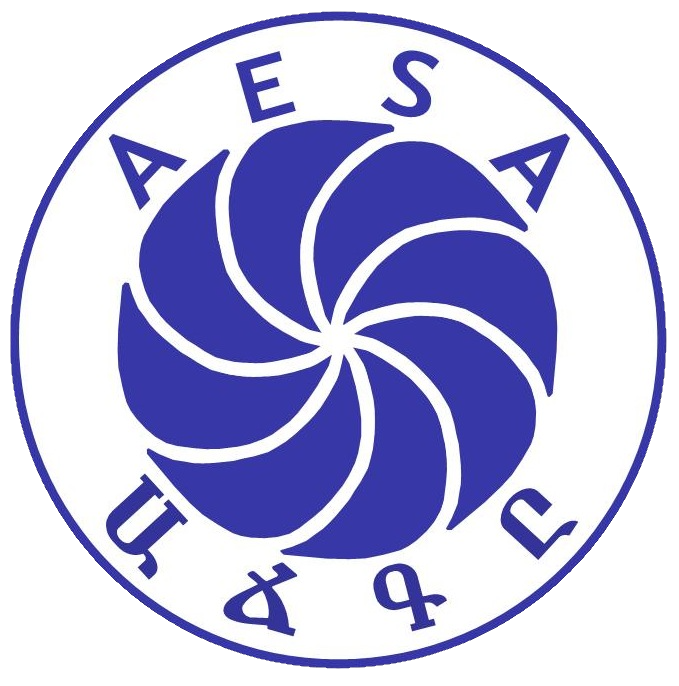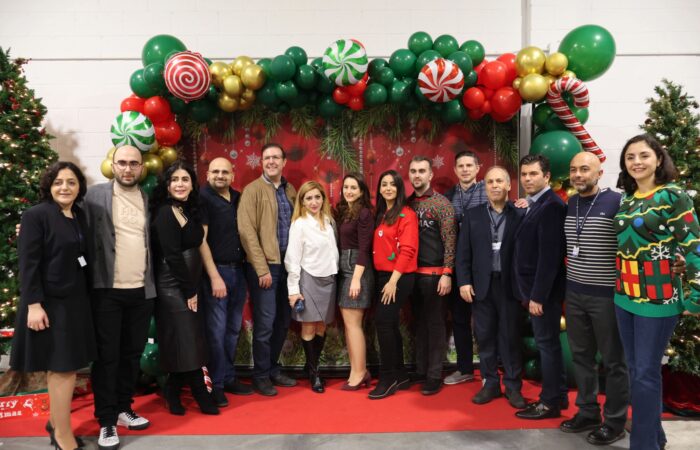The Armenian Engineers and Scientists of America (AESA) is pleased to award Dr. Sarkis Mazmanian the Victor Hambartsumyan Award, a prestigious award that recognizes the technical excellence and achievements of engineers and scientists of Armenian descent, at the 36th Annual AESA Gala.
Dr. Mazmanian is currently a Luis B. and Nelly Soux Professor of Microbiology and Heritage Principal Investigator at the California Institute of Technology. He completed his undergraduate degree and obtained his PhD at the University of California, Los Angeles. Dr. Mazmanian’s research has had an impact in how we think about the gut microbiome and its importance in autism, neurodegenerative diseases and other conditions of the brain. He has shown that gut bacteria can influence the brain by releasing molecules that cross the blood-brain barrier.
Most recently, his work on Autism Spectrum Disorder (ASD) has shown that mice colonized with gut microbiota from human donors with ASD displayed ASD-like behaviors arising from specific classes of bacteria and their metabolites. He is a co-founder and director of Axial Biotherapeutics which is currently conducting human clinical trials using small molecules and live biotherapeutics for the treatment of Parkinson’s Disease and Autism Spectrum Disorder. In 2012, Dr. Mazmanian was awarded the MacArthur Fellowship. His work has been published in Science, Nature, Proceeding of the National Academy of Sciences, and Cell, amongst many other scientific journals.
In honor of the AESA Victor Hambartsumyan Award, Dr. Mazmanian was kind enough to allow us to interview him.
Careen: First, I would like to ask you a bit about yourself and how you got started in this field. What made you passionate about this field?
Dr. Mazmanian: I had many teachers who encouraged me to pursue a career in writing, but I truly became passionate about science during my introductory biology class at UCLA. I had never felt this feeling of curiosity – and wanting to “turn the page” – than I did in this class. I fell in love with microbes, bacteria in particular, and pursued my PhD in bacterial pathogenesis. After graduate school I was wondering what I wanted to do with my career. At that time, microbiology was dominated by the study of infectious diseases and bacterial pathogenesis, but this wasn’t what I wanted to do. I came upon an opinion article about bacteria that live in our gut, and their impacts on nutrition and metabolism. I saw the potential of bacteria that live symbiotically with us as opposed to infecting us as being, somehow, more integral to human health. That was enough for me to make a quick decision and jump in with both feet. I did my post-doctoral work at Harvard Medical School where I set up a model system to look at how bacteria influence the maturation and development of the immune system. Then, I started my own laboratory at Caltech in 2006 and continued studying immune responses of the gut in the context of inflammatory bowel disease. About 8 to 10 years ago, I felt that it was time to blaze a new trail, therefore I became interested in the gut-brain connection and how microbes affect both behavior and neurological issues such as depression, autism, Alzheimer’s, and Parkinson’s disease. I became curious as to how bacteria influence these neurological outcomes. My laboratory discovered targets, whether they be druggable targets for small molecules or bacteria. In the meantime, I started two companies and it’s exciting to note that the technology that was developed in the lab is currently been used as an experimental treatment for autistic kids. I imagine there will be much more translational research that comes from this program.
Careen: Do you have any advice for trainees?
Dr. Mazmanian: Be passionate. Identify something that appeals to you. Ultimately, you need to be happy, which will increase the likelihood of success. I have realized two important qualities that I believe help contribute to success: hard work and common sense.
Careen: What is your involvement with Armenia’s scientific community?
Dr. Mazmanian: I was born in Beirut and moved to Los Angeles when I was one year old. I had no connection with Armenia. One day I got on a plane and took a flight to Armenia. I immediately felt at home. I wanted to give back by providing scientific information and teaching what I know. I identified the Institute of Molecular Biology at the National Academy of Sciences of Armenia and simply asked them if I could teach. They allowed me to use a lecture hall and advertised for the class, and I began teaching a yearly course on host-microbial interactions to graduate students from any university in Armenia. After a few years, I asked my colleagues to help. Now, we teach a class at the institute annually. As for locally, I try to make myself available to Armenian students and scientists as much as possible.
Careen: Do you think commensal bacterial therapy could be a medical procedure of the future for any non-hereditary neurological diseases?
Dr. Mazmanian: The study of the microbiome may lead to new potential therapies for different diseases. Diseases of the intestines, such as Clostridium difficile infection or Crohn’s disease could possibly be cured. There are so many clinical trials that I am optimistic this will translate into FDA approved drugs someday. It’s very possible that ten years from now we can go to the doctor and get prescribed live bacteria or molecules of bacteria.
Careen: Lastly, where do you see your research going in the next several years? What do you plan on accomplishing next?
Dr. Mazmanian: We’ve already begun to move our basic research from the lab to the clinic and we have a path through my company, Axial Biotherapeautics, to do this. We currently have a clinical trial underway to treat autism and will launch several new clinical trials in the next few years. My laboratory will continue to study how the gut microbiome impacts behavioral and neurodegenerative disorders including Autism, Parkinson’s, and Alzheimer’s disease. We are constantly making discoveries in basic experimental systems that will ultimately lead to new drug candidates, and more human research. I’m really hopeful that some of these technologies will show promise in the clinic and we can contribute to providing medicine for patients.



